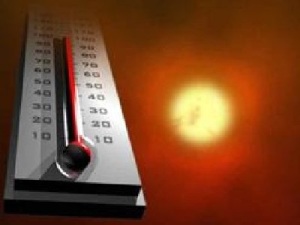The nation is headed for strong heat waves in coming decades that will hit cities and farmers and threaten wildlife with extinction, a new global warming report warns.
The report, “More Extreme Heat Waves: Global Warming’s Wake Up Call,” sponsored by medical, environmental and civil rights organizations, comes as a legislative fight over a climate change bill gets ready to resume next month in Congress. Its remedies are based on recent findings of global warming effects by the U.S. Global Change Research Program, which coordinates climate research across federal agencies.
“The report highlights the current vulnerabilities from heat waves growing,” says climate scientist Amanda Staudt of the National Wildlife Federation, a report sponsor. Average temperatures are expected to grow 4 to 11 degrees Fahrenheit nationwide over the next century, according to the federal climate research group.
The severity will vary with industrial emissions of greenhouse gases, but “heat waves will continue to get worse in the coming decades,” the report warns. It lists the 30 major cities most at risk.
In June, the climate research program published a report that found average temperatures in the USA have increased more than 2 degrees in the past five decades, largely as the result of emissions of greenhouse gases such as carbon dioxide, which are produced by burning fossil fuels such as coal and oil. Greenhouse gases trap heat in the atmosphere, which drives up temperatures in the air and oceans.
“Heat waves worsen not only direct effects like heat stroke but also heart disease, asthma and other respiratory problems,” says Peter Wilk of Physicians for Social Responsibility in Washington, D.C., a report sponsor. The 1995 Chicago heat wave killed more than 500 people, and the 2003 European heat wave killed more than 35,000, he adds.
“People in cities, the poor and often people of color, are the most vulnerable,” says Benjamin Jealous, head of the NAACP, another report sponsor. “They are most likely to live in high-rise apartments, lack air conditioning and other resources. Climate change is a civil rights issue.”
Says environmental hazards expert Michael McGeehin of the federal Centers for Disease Control and Prevention, which was not part of the report: “This report does a nice job of laying out the risks and steps we can take in the face of changing climate. Every heat death is preventable.”


